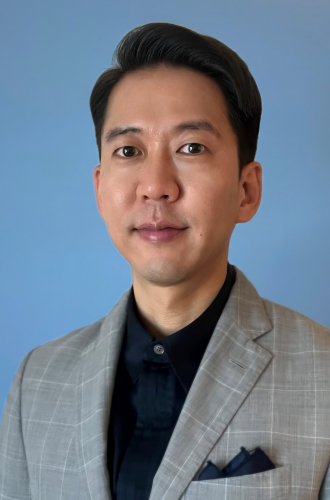-

-

-
Sae Hwang Han
Assistant Professor, Research Lab Director (Academic)
Department of Human Development and Family Sciences, Population Research Centersaehwang.han@utexas.edu
Phone: 512-471-5606
Office Location
SEA
Postal Address
108 E DEAN KEETON ST
AUSTIN, TX 78712-
Education
Ph.D., M.S., University of Massachusetts Boston
M.A., Yonsei University, Republic of Korea
B.S., Yonsei University, Republic of KoreaAcademic Positions
2019 – Present Assistant Professor, Department of Human Development and Family Sciences, UT Austin
2019 – Present Faculty Research Associate, Population Research Center, UT AustinResearch Interests
The overarching objective of Han's research is to contribute to the scientific literature on social relationships and health in middle and later adulthood. Han's current research interests center around examining health consequences of social and productive engagement in middle and later adulthood, with a particular focus on examining how various forms of helping behaviors (e.g., formal volunteering, informal helping, or caregiving) influence behavioral and neurobiological mechanisms underlying health. Another stream of his research focuses on examining dyadic processes underlying coupled individuals’ health behaviors and health outcomes in mid- and late-life, demonstrating how individuals draw from one’s own and partners’ social relationships for the betterment of their health. Han’s research employs longitudinal data from national surveys, such as the Health and Retirement Study (HRS) and the Midlife in the United States (MIDUS).
-
Select Publications
Han, S. H. (2023). Revisiting the stress process in family caregiving: Does the act of providing care really lead to worse mental health outcomes? Advances in Life Course Research, 58, 100579. [Link]
Han, S. H., Shih, Y., Burr, J. A., & Peng, C. (2023). Age and cohort trends in formal volunteering and informal helping in later life: Evidence from the Health and Retirement Study. Demography, 60, 99-122. [Link]
Han, S. H., Kim, K., & Burr, J. A. (2021). Take a sad song and make it better: Spousal activity limitations, caregiving, and depressive symptoms among couples. Social Science & Medicine. [Link]
Han, S. H. (2021). Health consequences of retirement due to non-health reasons and poor health. Social Science & Medicine, 273, 113767. [Link]
Han, S. H., Kim, K., & Burr, J. A. (2021). Activity limitations and depressive symptoms among older couples: The role of spousal care. The Journals of Gerontology, Series B: Psychological Sciences and Social Sciences, 76, 360-369. [Link]
Han, S. H., Roberts, J. S., Mutchler, J. E, Burr, J. A. (2020). Volunteering, polygenic risk for Alzheimer's disease, and cognitive functioning among older adults. Social Science & Medicine, 253, 112970. [Link]
Han, S. H., Kim, K., & Burr, J. A. (2020). Stress-buffering effects of volunteering on daily well-being: Evidence from the National Study of Daily Experiences. The Journals of Gerontology, Series B: Psychological Sciences and Social Sciences, 75, 1731-1740. [Link]
Han, S. H., Kim, K., & Burr, J. A. (2019). Social support and preventive healthcare behaviors among couples in later life. The Gerontologist, 59, 1162-1170. [Link]
Han, S. H., Kim, K., & Burr, J. A. (2019). Friendship and depression among couples in later life: The moderating effects of marital quality. The Journals of Gerontology, Series B: Psychological Sciences and Social Sciences, 74, 222-231. [Link]
Han S. H., Kim, K., & Burr, J. A. (2018). Stress-buffering effects of volunteering on salivary cortisol: Results from a daily diary study. Social Science and Medicine, 201, 120-126. [Link]
-














